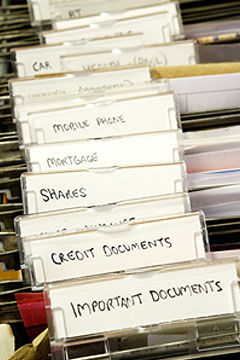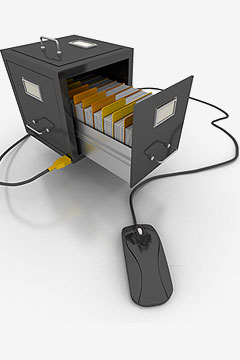
It’s one of the first questions that comes to mind when a company wants to change its document management processes and there’s a wide range of ways you can do this.
The first thing to consider is what format you want to store your documents in; hard copy or digital? Once you’ve decided this, there are a few methods you can choose between so let me break it down.
Manual Document Management
Manually managing documents is the traditional method of storage and is still a favourite with lots of businesses across the country. Whether it’s the nostalgic love of paper or the need to have something physical in their hands, despite the rise in digital business, these people still prefer to store documents in the two methods below.
Office Storage
Think filing cabinets, folders and boxes. It’s probably the image you have in mind when you think of the average business office. Storing files like this is the most traditional method and the go-to way for a number of businesses but if we really think about it, there aren’t a great deal of benefits, it just seems to be a force of habit. Having said that, for a small number of documents, office storage can be the best method.
Off-Site Storage
Sometimes when there’s too many documents and files to fit on their premises, companies hire off-site facilities to store their documents securely. While this method is more secure than storing files in the office, it has an even slower document retrieval time because you have to request for the relevant document to be sent to you.
Digital Document Management
CD/DVD/USB
Storing digital images or files on a CD, DVD or USB means you can carry them on the go for remote site access. Files can be duplicated onto different systems, shared and viewed easily. The only downside to this method of storage is the risk of losing the CD, DVD or USB having not back the files up and the fact that you will always have to remember it when you know you’ll need to retrieve files.
Shared Network
With a shared network, the benefits are obvious; you have a network on which you can share your digital files with other members of staff or anyone else with access to the network. Shared networks can be based on a computer network or an online cloud platform. Both of these networks offer advantages but cloud storage has really taken off over the past few years because it offers the ability to access files at any time from any device with access to the internet.
Document Management System
Sometimes when companies decide to store their files digitally, they don’t have a system in place which can lead to some trouble managing the files. This is where document management software becomes a vital resource. It allows documents to be searched, organised and retrieved with ease. There are a wide range of choices of software ranging from simplistic to highly technical but the best thing to do is try one out and see if it suits your company.
Pearl Scan Can Help
Here at Pearl Scan, we provide document scanning services as well as document management consultancy to businesses, organisations and individuals from a wide range of industries including legal, HR, healthcare, education and finance.
We can scan any file from as small as a till receipt right up to a large format drawing or plan for which we can then provide image management software for your scanned images. We also have our own cloud platform, Pearl Cloud for you to host your files once they have been scanned.
If you would like some more information about our document scanning, management and storage services, check out our website or give us a call to receive your free, no obligation quote.
Request a Quote | Contact Us | This email address is being protected from spambots. You need JavaScript enabled to view it.
The Scan-do Peopletm
For more information feel free to give us a call:
Nationwide: 0845 22 55 923 London: 0207 183 1885
Manchester: 0161 832 7991 Birmingham: 0121 285 1900
